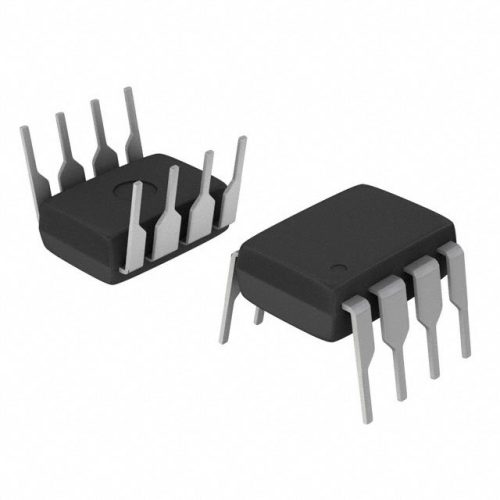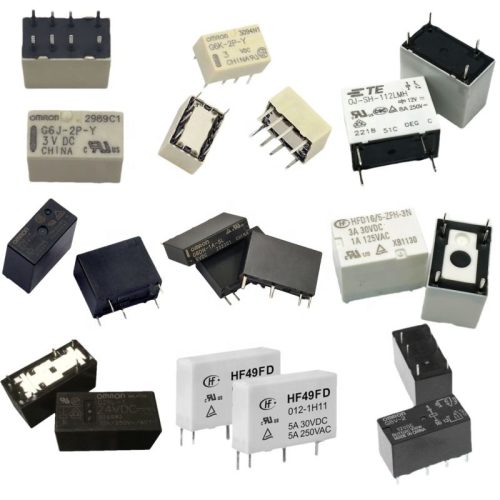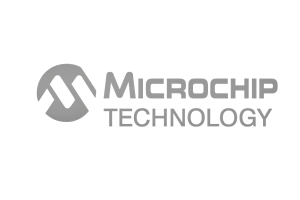High-Precision Instrumentation Amplifier for Industrial Applications
Il INA128 is a high-performance instrumentation amplifier designed by Texas Instruments (TI), engineered for precision signal acquisition in demanding industrial and medical environments. With its low offset voltage, high common-mode rejection ratio (CMRR), and wide gain range, this device is ideal for applications requiring accurate, low-noise signal amplification. The INA128 is part of TI’s trusted analog product portfolio, known for delivering reliable and consistent performance in mission-critical systems.
Overview of the INA128 Instrumentation Amplifier
This instrumentation amplifier is optimized for differential signal acquisition where high accuracy and low noise are essential. It features a single external resistor to set gain, simplifying design and reducing component count. The device operates over a wide supply voltage range and is available in both DIP and SOIC packages, making it suitable for a variety of PCB layouts and system requirements.
🔥 Prodotti più venduti
-

IC timer TLC555 - Timer di precisione Texas Instruments in contenitore PDIP-8
-

Amplificatore operazionale a basso rumore con ingresso a JFET di Texas Instruments TL081 - Pacchetto DIP-8
-

Controllore PWM in modalità corrente UC3842 di Texas Instruments - Pacchetto DIP-8
-

Regolatore di tensione LM2937 di Texas Instruments in confezione TO-220 - Lineare a basso dropout
Designed with precision analog circuitry, the INA128 is widely used in sensor signal conditioning, medical instrumentation, e industrial process control. Its robust performance and ease of integration make it a preferred choice among engineers and system designers.
Specifiche tecniche e caratteristiche elettriche
| Parametro | Valore | Unità |
|---|---|---|
| Tensione di offset in ingresso (max) | 250 | µV |
| Rapporto di reiezione di modo comune (CMRR) | 120 | dB |
| Gain Range | 1 to 10,000 | V/V |
| Gain Error (Max) | 0.01 | % |
| Bandwidth at Gain = 1 | 1.3 | MHz |
| Intervallo di tensione di alimentazione | ±2.25 to ±18 | V |
| Corrente di bias d'ingresso | 2 | nA |
| Intervallo di temperatura operativa | -40 to +85 | °C |
| Opzioni del pacchetto | 8-Pin DIP, 8-Pin SOIC | – |
Why Choose This Instrumentation Amplifier Over Standard Alternatives?
Compared to typical alternatives, this amplifier offers several key advantages that make it a superior choice for precision analog signal processing:
🌟 Prodotti in evidenza
-

"Acquista il comparatore di tensione di precisione MAX9312ECJ+ in contenitore DIP per prestazioni affidabili".
-

Modello 0339-671-TLM-E - Pacchetto TLM-E ad alte prestazioni per funzionalità avanzate
-

1-1415898-4 Alloggiamento connettore, filo elettrico-scheda, presa, confezionato
-

1-1462039-7 Connettore elettrico, montaggio su PCB, foro passante, zoccolo per intestazione a 2 pin
- Exceptional Accuracy: With a maximum input offset voltage of just 250 µV and a gain error of 0.01%, it ensures minimal signal distortion and high measurement fidelity.
- High CMRR: The 120 dB CMRR significantly reduces common-mode noise, making it ideal for noisy industrial environments.
- Flexible Gain Configuration: Gain can be easily set from 1 to 10,000 using a single external resistor, offering design flexibility and reducing BOM complexity.
- Basso consumo energetico: Operates efficiently across a wide supply voltage range, making it suitable for battery-powered and energy-sensitive applications.
- Proven Reliability: Manufactured by Texas Instruments, a global leader in analog and embedded processing, ensuring long-term availability and support.
These features make it a go-to solution for engineers seeking a balance of performance, reliability, and ease of use in their analog front-end designs.
Typical Applications in Industrial and Medical Systems
This device is widely adopted in various high-precision applications, including:
📩 Contattaci
- Strumentazione medica: ECG, EEG, and other bio-potential signal acquisition systems benefit from its low noise and high input impedance.
- Industrial Process Control: Used in pressure, temperature, and flow sensor interfaces where accurate signal amplification is critical.
- Weigh Scales: Ideal for load cell signal conditioning due to its high gain and low offset characteristics.
- Sistemi di acquisizione dati: Ensures accurate signal capture in multi-channel analog front ends.
- Bridge Amplifiers: Suitable for Wheatstone bridge configurations in strain gauge and pressure sensor applications.
Informazioni su Texas Instruments - Un nome affidabile nell'innovazione analogica
Texas Instruments (TI) is a globally recognized semiconductor manufacturer known for its innovation in analog and embedded processing technologies. With decades of experience and a commitment to quality, TI provides robust solutions that power everything from industrial automation to medical diagnostics. The company’s analog portfolio, including the INA128, is trusted by engineers worldwide for its performance, reliability, and long-term product support.
Domande frequenti (FAQ)
1. What makes this instrumentation amplifier suitable for medical applications?
Its low input offset voltage, high CMRR, and low noise performance make it ideal for amplifying small bio-potential signals in ECG and EEG systems, ensuring accurate and reliable readings.
2. Can this amplifier be used in battery-powered systems?
Yes, it operates efficiently over a wide supply voltage range, including low-voltage rails, making it suitable for portable and battery-operated devices where power efficiency is critical.
3. How is the gain of the amplifier configured?
The gain is set using a single external resistor, allowing for easy customization from 1 to 10,000 V/V. This simplifies circuit design and reduces the need for multiple amplifier models.
4. Quali sono le opzioni di confezionamento disponibili?
It is available in 8-pin DIP and 8-pin SOIC packages, offering flexibility for through-hole and surface-mount PCB designs, depending on your manufacturing requirements.







